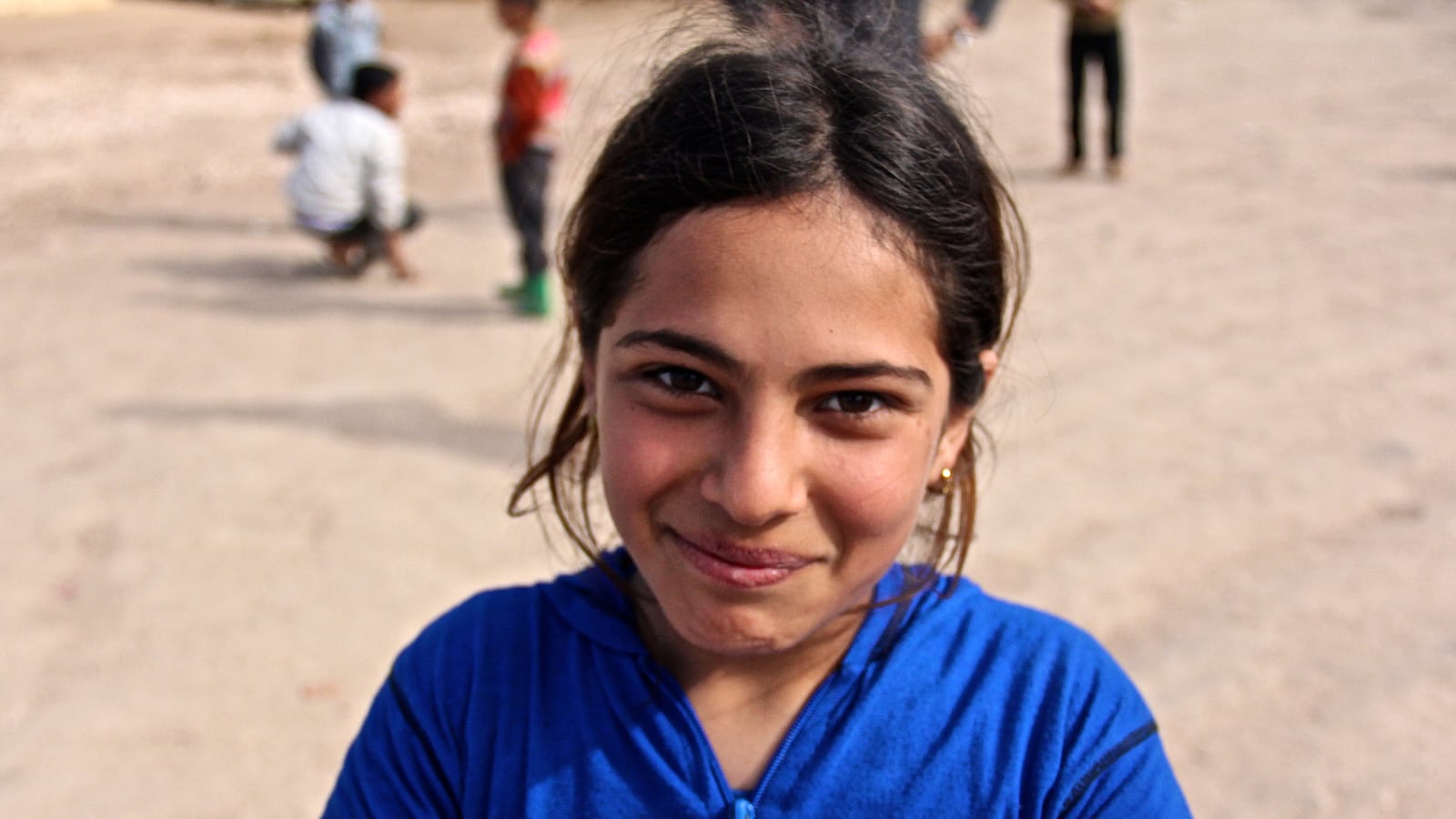
As the drive for Syria peace talks resumes in Geneva, Anna Therese Day shares her ongoing project, “Messages to America: Notes from Syrians on the Ground” These pictures offer a glimpse into the millions of lives disrupted by the bloody conflict, even as the major world powers struggle to get the various rebel factions and the government of President Bashar al-Assad to the negotiating table.
All photos in this series are from Bab al-Salama Camp along the Syrian-Turkish border, just outside the rebel-controlled town of Azzaz, Syria.

Kareen asks if we know Hannah Montana. She's a fan of the Miley Cyrus alter ego and can even sing a song from the popular television show. "Will you please tell Hannah Montana to come to see us in Syria?" she squeals. Kareen's family has been waiting for six months to get her to safety across they border. They're worried about her hitting puberty soon, particularly because many Syrian girls have been kidnapped into sex slavery since the conflict began.

This Syrian grandmother is from Tarafat, a northern rebel-controlled village. Because of the squalid conditions in the refugee camp, her family is considering returning to Tarafat despite the ongoing threat of aerial bombardment by the Assad regime. “I want Americans to know that I cried about the 9/11 attacks. I wept, and so did so many Syrians for your tragedy,” she says. “I want to know what Americans think about Syria, do they know about Syria? I want to know if Americans are weeping for us.”

There’s no running water or electricity in the makeshift border camps that have become home to thousands of Syrians awaiting refugee status in neighboring countries. Nadia, aged eight, and her little brother bring water back to their family’s tent from tanks provided by NGOs from the Gulf and the United Nations. In addition to her message to America (“We love you and we study English!”), Nadia can recite all of the ABCs. She says she is unclear, though, whether Mickey Mouse is “a mouse or a bear.”

“I miss Ahmed. I want him back with us,” says five-year-old Ayman. His parents explain that one of the boy’s older brothers, Ahmed, was killed when he school was bombed by Assad’s airplanes in al-Bab, a northern rebel-controlled town that has suffered many strikes on schools. Behind Ayman, a river of sewage runs through the makeshift border camp.

This little boy says he wants to fight Bashar al-Assad like his older brothers, whom his family says are now rebel fighters in Aleppo. His message for America, he says, is: “I want to go home.”

This young rebel fighter shows off his weapon as he helps guard a makeshift border camp. “Thanks for all the help,” he says bitterly. “We’ll remember who our friends are and who let Bashar massacre us.”

This Syrian grandfather remembers his wife who, like many refugees, died from disease while waiting in squalid border camps. “I want Americans to know about my wife. She was a survivor. She had nine children and thirteen grandchildren," he said. "When I aged and couldn’t walk well, she took care of me. When our home was destroyed in Maree [a northern Syrian town now under rebel control], she was inside and still lived. My wife died in February here after waiting for four months on the border without clean water or any space of our own. She died from her diabetes because we couldn’t get her medicine here, even though we can see Turkey with our own eyes... That is what I want America to know about the Syrian Revolution.”

“I want Americans to know that I made a home like theirs in your movies. My home was beautiful, and it was a home for me and my children and my grandchildren,” says a Syrian grandmother from Aleppo, as she reflects on the dehumanizing realities of the border camps. “We left it in August [2012] with the shelling in Aleppo, and it was destroyed when we left. I don’t want to go back to see it because it will be too much to handle. But I want you to know that we built homes for our families like yours, we were not rich but it was a home, and living in this tent, giving you tea like this, I am so very humiliated. [Cries.] This is humiliating and no one should have to live like this.”

This border guard, who works for the rebel alliance formerly known as the Free Syrian Army (FSA) has a sobering message to America: “We won’t forget that you forgot us.”





